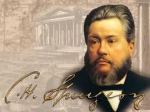Taken from brief exposition of Daniel 9:1-19 (This comment is on vv 10-15)
Suggested Further Reading: Psalm 85
The prophet in his prayer pleads what God has done for them, as the reason why he should bare his arm; he tells how God delivered Israel out of Egypt; and he therefore prays that God would deliver them from their present trouble. And, my brethren, not Israel itself could boast a nobler history than we, measuring it by God’s bounties. We have not yet forgotten an armada scattered before the breath of heaven, scattered upon the angry deep as a trophy of what God can do to protect his favoured isle. We have not yet forgotten a fifth of November, wherein God discovered many plots that were formed against our religion and our commonwealth. We have not yet lost the old men, whose tales of even the victories in war are still a frequent story. We remember how God swept before our armies the man who thought to make the world his dominion, who designed to cast his shoe over Britain, and make it a dependency of his kingdom. God fought for us; he fought with us; and he will continue to do so. He has not left his people, and he will not leave us, but he will be with us even to the end. Cradle of liberty! Refuge of distress! Storms may rage around you, but not upon you, nor shall all the wrath and fury of men destroy you, for God has pitched his tabernacle in your midst, and his saints are the salt in your midst.
For meditation: These stirring words, spoken at the time of the Indian mutiny, are equally true of God’s faithfulness during the worldwide conflicts of the twentieth century. But do Spurgeon’s words “We have not yet forgotten” retain any ring of truth in a nation which appears intent on moving further away from God by the day? While we may “Remember, remember the fifth of November,” few could probably explain why we do so!
n.b. Read again the text for yesterday’s reading—pray that a forgetful nation will remember and turn back to its Creator and Judge.
Part of nos. 154-155
5 November (Given on 7 October 1857)
